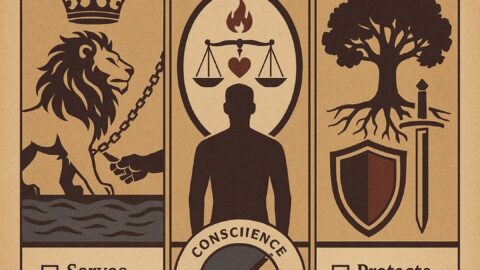“Getting rid of a delusion makes us wiser than getting hold of a truth.” – Ludwig Börne
This profound quote by Ludwig Börne, a German writer and political satirist, highlights a powerful insight into human growth and wisdom. It suggests that shedding false beliefs, misconceptions, or illusions can be more transformative and impactful than simply acquiring new truths. While truths add to our knowledge, removing delusions clears the path for deeper clarity, self-awareness, and genuine understanding.
Let’s explore this in detail, breaking it down into philosophical, psychological, emotional, and practical dimensions.
1. The Nature of Delusions and Truths
A. What is a Delusion?
- A delusion is a false belief or misconception that a person clings to despite evidence to the contrary.
- Delusions are not limited to mental illness; they exist in everyday thinking, societal narratives, and cultural norms.
- They are often reinforced by bias, ego, fear, or societal pressure.
Examples:
- Believing that material wealth guarantees happiness.
- Thinking you’re always right despite repeated evidence to the contrary.
- Assuming your worth is defined by others’ approval.
B. What is Truth?
- Truth represents reality, accuracy, and factual understanding.
- However, truths are often layered and require a clear, unbiased mind to fully comprehend them.
- Acquiring truth without clearing delusions can lead to confusion, contradiction, or misuse of knowledge.
2. Why Removing Delusions is More Transformative than Gaining Truth
A. Delusions Block Truth
- Delusions act as mental filters that distort our perception of reality.
- If your mind is clouded by false beliefs, even a profound truth may not penetrate.
- Clearing away delusions creates space for truth to take root and flourish.
Example:
- A student who believes they are inherently “bad at math” will struggle to grasp even the most basic mathematical concepts, no matter how well they are explained.
- Only when the delusion of “I can’t do math” is removed can the truth (that math can be learned with effort and patience) be fully embraced.
B. Wisdom Comes from Clarity
- Acquiring truths adds knowledge, but removing delusions brings clarity.
- Clarity allows us to see reality without distortion, interpret situations accurately, and make sound decisions.
Example:
- A person may learn the truth that exercise improves health, but if they hold onto the delusion that “I’m too busy to work out,” the truth remains ineffective.
C. Delusions Are Often Emotionally Charged
- Delusions are frequently tied to fear, ego, pride, or insecurity.
- Overcoming a delusion often requires emotional courage and humility—qualities essential for wisdom.
Example:
- A leader who believes they are infallible will reject constructive criticism, no matter how truthful it is.
- Only by confronting the delusion of infallibility can they grow as a leader.
3. The Psychological Perspective
A. Cognitive Dissonance
- When people encounter truths that contradict their delusions, they experience cognitive dissonance—a state of mental discomfort.
- Many people prefer to ignore or reject the truth rather than confront their delusion.
Example:
- Smokers know smoking is harmful (truth), but they might convince themselves that “it’s not that bad” (delusion) to reduce discomfort.
B. The Ego’s Role in Delusion
- Delusions often protect the ego from uncomfortable realities.
- Admitting you were wrong about something (a delusion) can feel like a personal defeat, but it is a powerful step toward growth.
Example:
- Admitting that a relationship is toxic (removing delusion) can be far more liberating than merely understanding what a healthy relationship looks like (truth).
4. Emotional and Spiritual Growth Through Removing Delusions
A. Emotional Liberation
- Letting go of delusions often brings an emotional release—a sense of freedom from mental chains.
- Truth can bring peace, but removing a false belief can lift an emotional burden.
Example:
- Believing “I’m unworthy of love” is a delusion that can block happiness in relationships.
- Removing this belief can be far more liberating than simply hearing someone say, “You are worthy.”
B. Spiritual Insight
- Many spiritual traditions emphasize clearing false perceptions before attaining enlightenment or wisdom.
- Spiritual growth often begins with unlearning falsehoods rather than simply learning doctrines.
Example:
- In Buddhism, attachment to false views is considered one of the root causes of suffering.
5. Practical Applications in Daily Life
A. Self-Reflection
- Regularly ask yourself: What beliefs am I holding onto that might not be true?
- Challenge assumptions and seek evidence for your beliefs.
B. Stay Open-Minded
- Be willing to admit when you’re wrong.
- Understand that changing your mind is a sign of strength, not weakness.
C. Prioritize Clarity Over Certainty
- People often cling to delusions because they offer a false sense of certainty.
- Accepting ambiguity and change is key to letting go of falsehoods.
6. Examples from History and Society
A. Scientific Progress
- Humanity advanced not just by discovering truths but by discarding false beliefs (e.g., the Earth being the center of the universe).
B. Social Justice Movements
- Movements like civil rights or women’s suffrage succeeded because society began shedding delusions about equality and justice.
C. Personal Development
- Many personal breakthroughs happen not when we learn something new, but when we let go of a harmful belief or narrative about ourselves.
7. Final Reflection
Ludwig Börne’s quote serves as a reminder that wisdom isn’t just about accumulation—it’s about purification.
- Truth can enrich us, but removing delusions can transform us.
- It’s not enough to learn more; we must also unlearn falsehoods.
Key Takeaways:
- Delusions are often deeply embedded in our psyche, ego, and culture.
- Removing them requires honesty, humility, and courage.
- A clear mind is more powerful than a mind cluttered with truths and delusions alike.
In short:
“The path to wisdom is not just about finding light—it’s also about removing the shadows that block it.”







